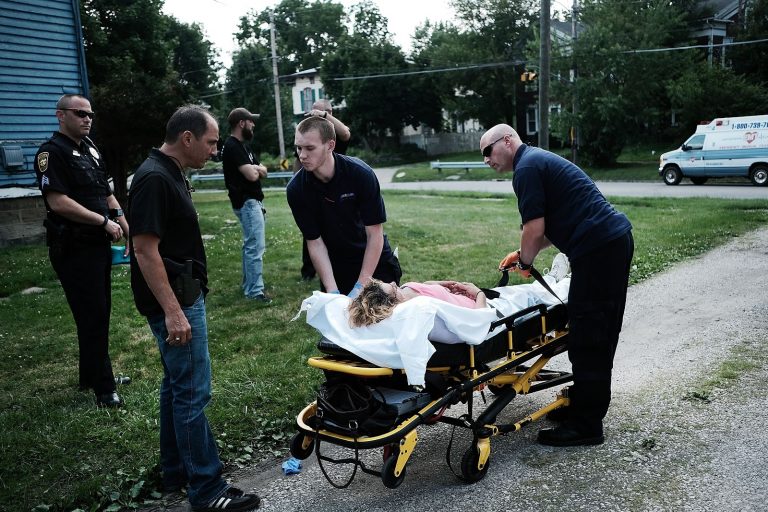As pharmaceutical companies are being held responsible for their role in the opioid crisis, CEOs of these corporations are shirking personal responsibility and continue to collect high wages, even bonuses. While companies have had to set aside billions in settlements, they can also write some of it off as a loss, leaving room for lavish CEO wages.
According to NPR, Shawn Wooden, Connecticut’s state treasurer, said that top CEOs of prescription opioid companies are being rewarded after making risky decisions that led them deep into the opioid business. An example of this would be Steve Collis, who has been CEO of AmerisourceBergen since 2011. He received $14.3 million for his work in 2020, a 26% raise, while in that same year, his firm settled a $6.6 billion opioid case with the state. In a similar case, CardinalHealth, who is involved with a $6.5 billion settlement, gave CEO Michael Kaufman a $2.5 million bonus in 2020.
Dr. Craig Landau, CEO of Purdue Pharma, OxyContin maker, led the company into bankruptcy after taking over as CEO in 2017. He has made no personal admission of wrongdoing but is named in dozens of lawsuits, as the company has admitted committing federal crimes related to opioid sales. Despite all of that, Landau was rewarded with a $3 million bonus, which a federal bankruptcy judge approved.
When confronted about the $3 million bonus in court, Landau said, “I have already made — willingly made — significant monetary concessions in order to move the bankruptcy process forward.” Landau expressed regret for the harm that OxyContin caused, but denied any personal responsibility.
A Purdue Pharma spokesperson spoke highly of Landau’s leadership and said that his $3 million bonus was appropriate. They said, “Despite unprecedented headwinds, Dr. Landau has led the company and delivered results for its many stakeholders.”
Success
You are now signed up for our newsletter
Success
Check your email to complete sign up
Johnsons & Johnson (J&J) and the Opioid crisis
Reuters reported that amid Johnsons & Johnson (J&J) lawsuits related to the Opioid crisis and allegations of asbestos in their baby powder, costing around $9 billion, CEO Alex Gorsky was still paid $29.6 million in 2020, a 17 percent increase from the previous year. An analyst from the Brotherhood of Teamsters estimated that Gorsky was paid $4.4 million related to tax compensation in the last two years. The situation is causing frustration among J&J shareholders. Illinois State Treasurer Michael Frerichs said that creating a COVID-19 vaccine should not excuse executives from “costs and failures that happened under their watch… Those foul-ups also need to be factored into the assessment.”

According to NPR, four of America’s largest healthcare companies are close to a combined $26 billion in settlements for their role in the manufacturing and disseminating Opioid medication. But critics point to the over $4 billion in tax breaks that these companies will be able to write off. In particular, lawmakers estimate that AmerisourceBergen will be able to write off $1.1 billion, Cardinal health $974 million, Johnson & Johnson $1.1 billion, and McKesson $1.4 billion.
The Centers for Disease Control and Prevention (CDC) charted 500,000 opioid overdose deaths from 1999-2019. Drug overdose deaths have increased dramatically in the U.S. during the COVID-19 pandemic. The CDC stated, “Over 81,000 drug overdose deaths occurred in the United States in the 12 months ending in May 2020, the highest number of overdose deaths ever recorded in a 12-month period,” with synthetic opioids being the “primary driver” in the increase in deaths, which grew 38.4 percent within that period.
Follow us on Twitter or subscribe to our email list














